Where to Stay in Hakone (Best Towns & Ryokans with Onsens)
6 min readHakone is often considered one of Japan’s best onsen towns. But, actually, Hakone is much more than just a single town! Hakone is an entire area inside the Fuji-Hakone-Izu National...
The post Where to Stay in Hakone (Best Towns & Ryokans with Onsens) appeared first on Bucketlist Bri.
Hakone is often considered one of Japan’s best onsen towns. But, actually, Hakone is much more than just a single town!
Hakone is an entire area inside the Fuji-Hakone-Izu National Park.
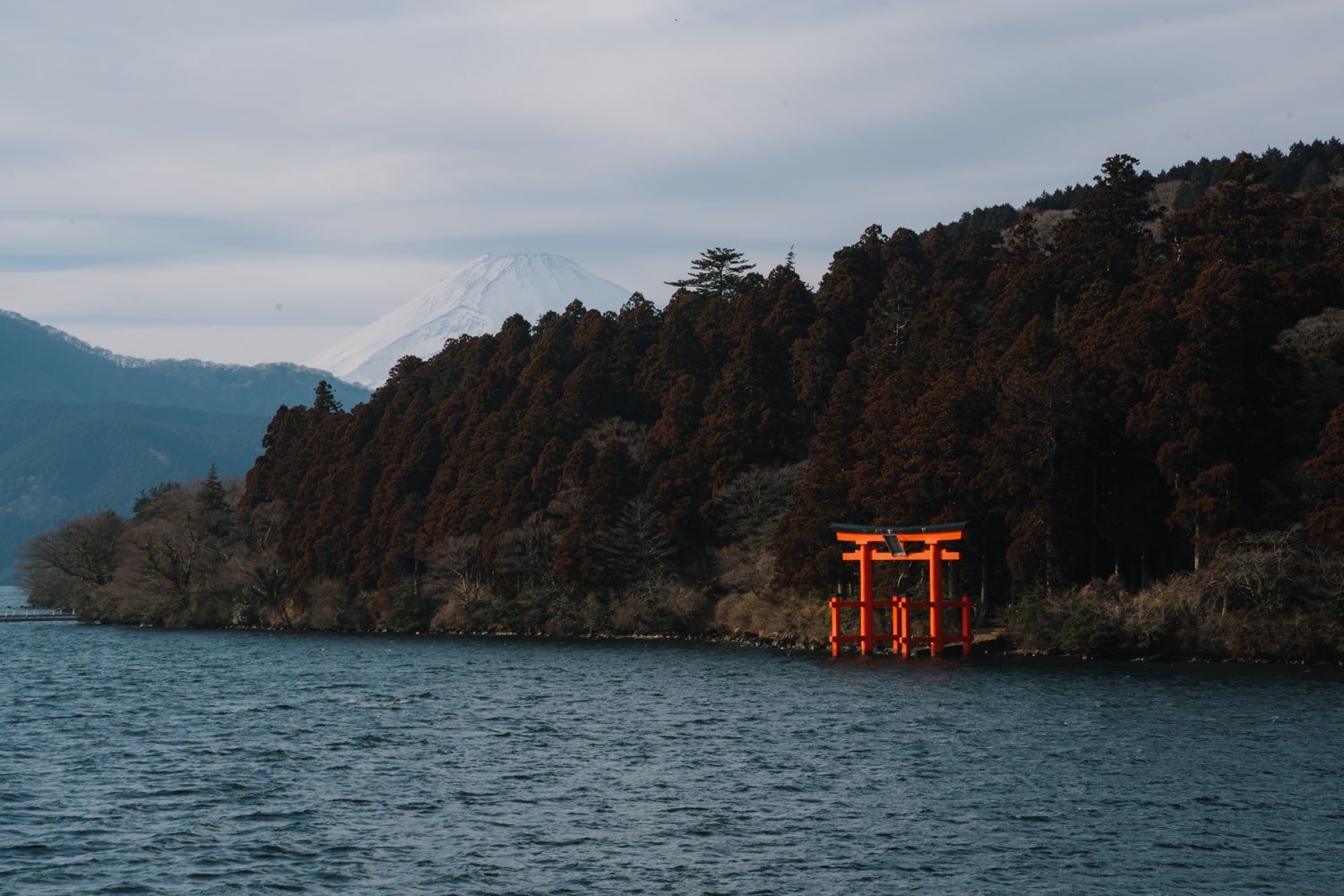
Disclaimer: This post may contain affiliate links which means I may earn a commission for bookings (at no extra cost to you). Thanks so much for your support!
Hakone has multiple small districts, each offering its own character, scenery, and convenience!
In this guide, I share the top towns and locations for overnight stays in Hakone, with details on what to expect and what to do, plus my recommendations for ryokan inns and hotels.
show
Best Towns & Places to Stay in Hakone
Yumoto
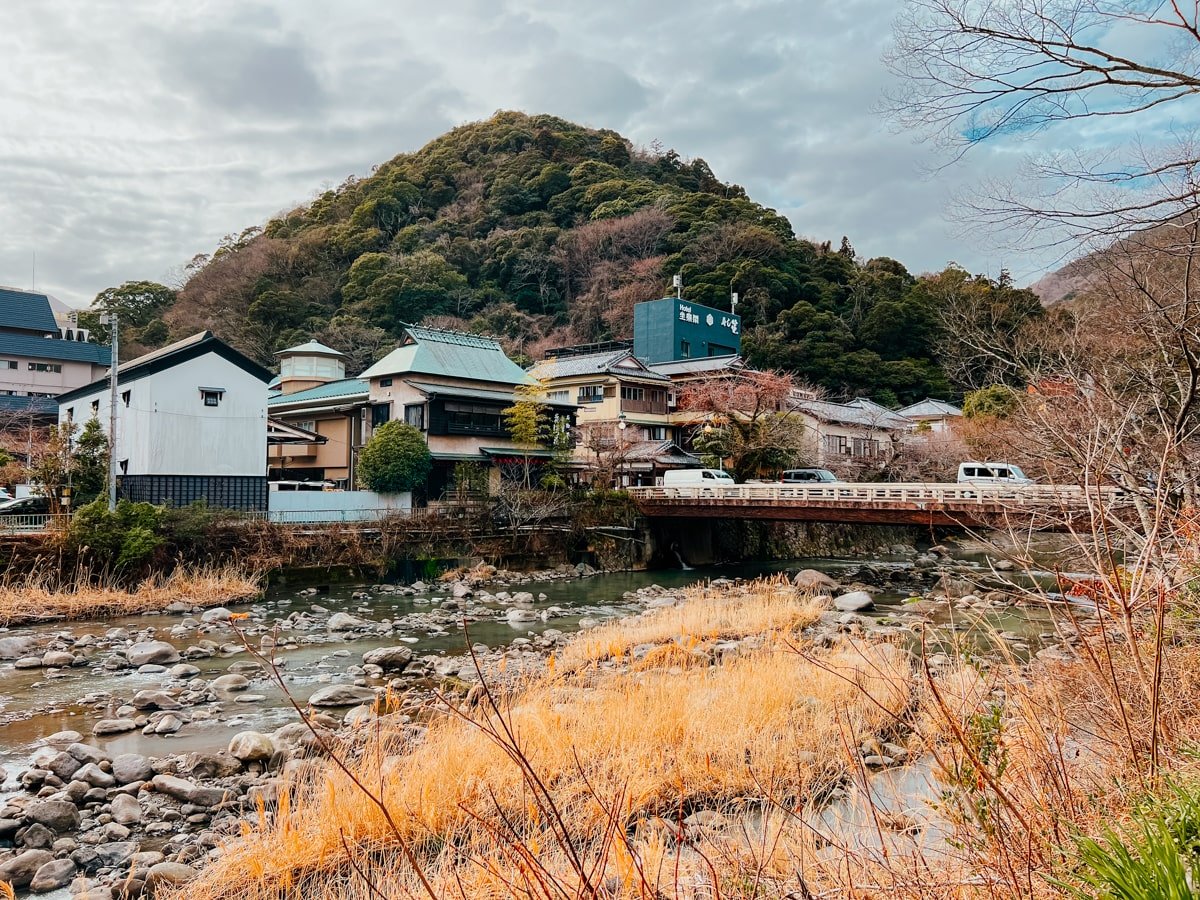
Yumoto is Hakone’s charming gateway town and arguably the best place to stay in Hakone for convenience!
Most tourists who journey to Hakone—on a day trip or a multi-day trip from Tokyo—will arrive at the Hakone-Yumoto Station. From there, you can visit Hakone via the area’s extensive bus and train lines.
But beyond the station, Yumoto has arguably the best, lively atmosphere.
The town is brimming with diverse restaurants, craft and souvenir shops, and regional specialties such as yam soba, manji, and yuba (tofu skin).
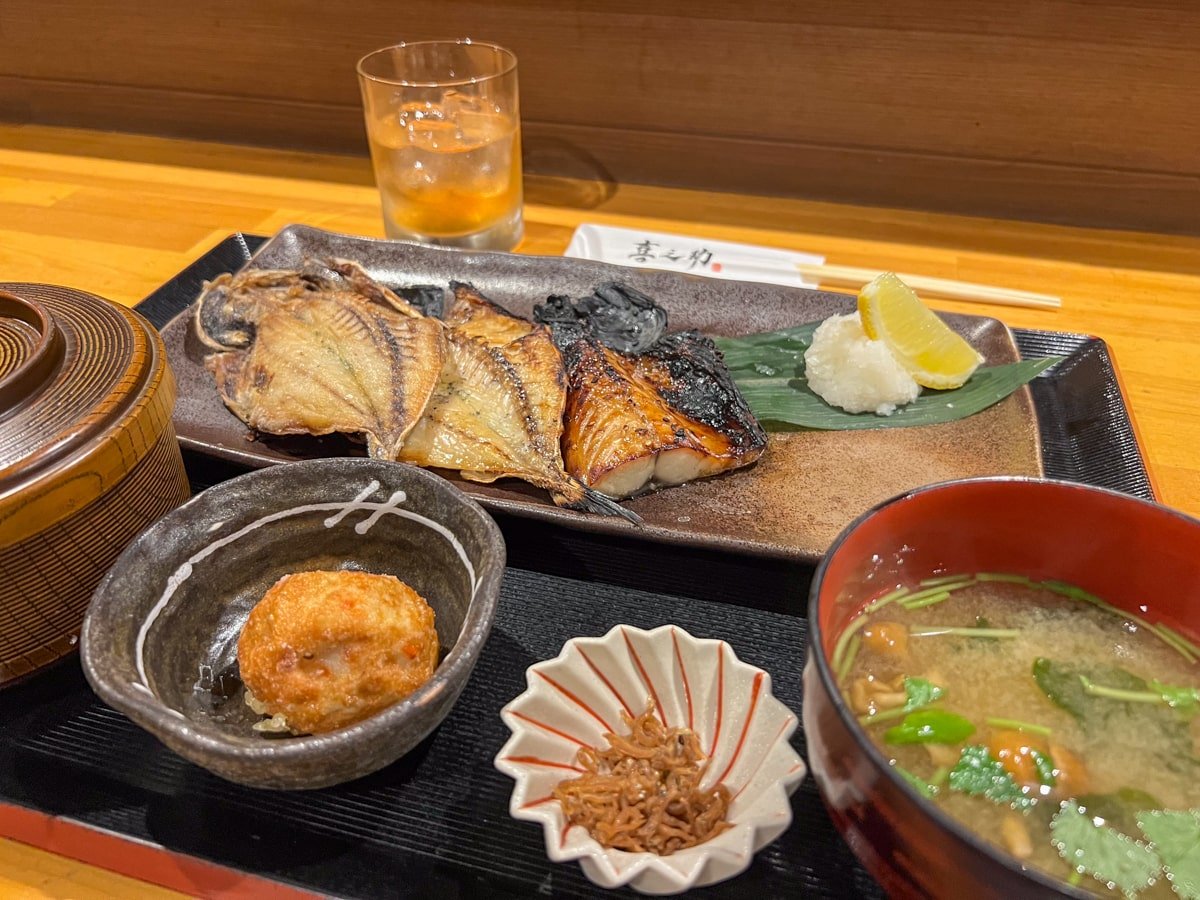
It also has a concentration of beautiful onsens (hot springs), offering day access at affordable prices. My favorite was the tattoo-friendly Tenzan Onsen, but those without ink can also visit the Yuryo and XYZ resorts.
You’ll also find various accommodation options in this town—from luxurious Ryokan inns to budget-friendly hostels.
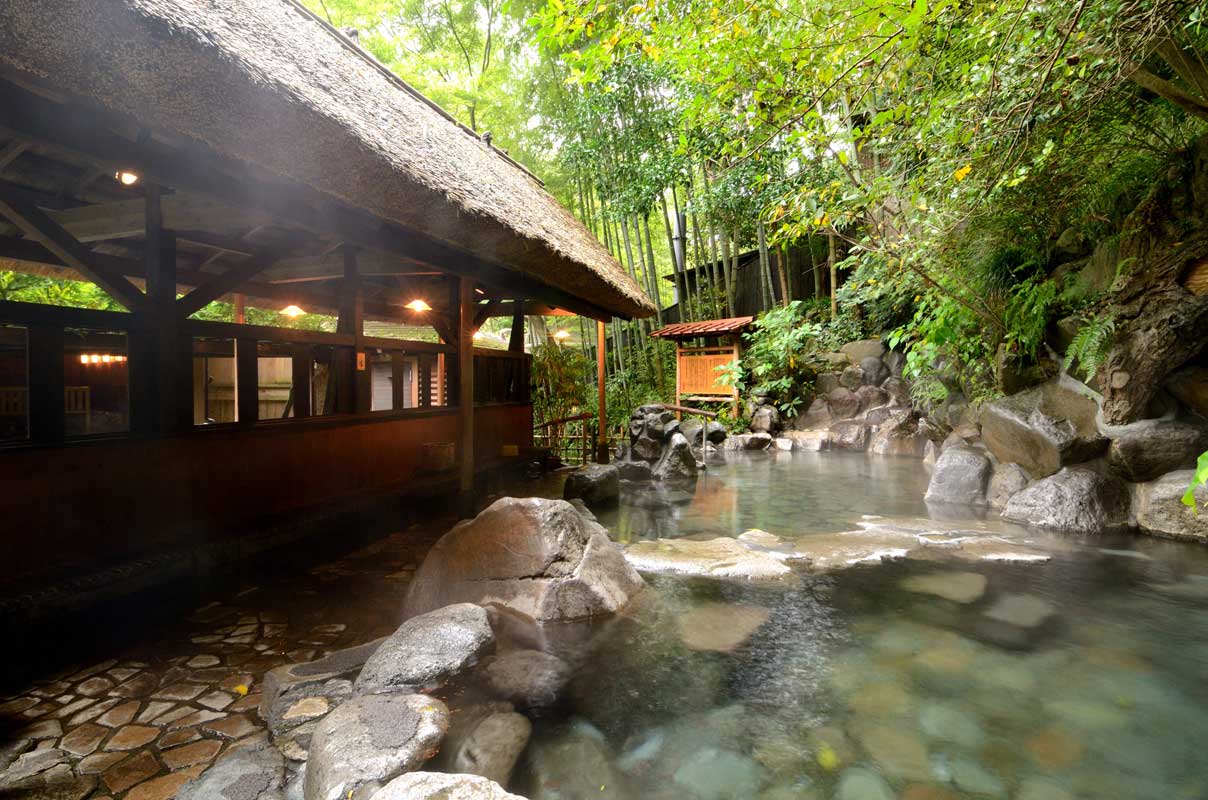
As a solo traveler, I stayed at the budget-friendly Guesthouse Azito Hostel and recommended it for a no-frills stay.
But if you are visiting on vacation or with family and friends, you should consider a traditional Japanese ryokan experience!
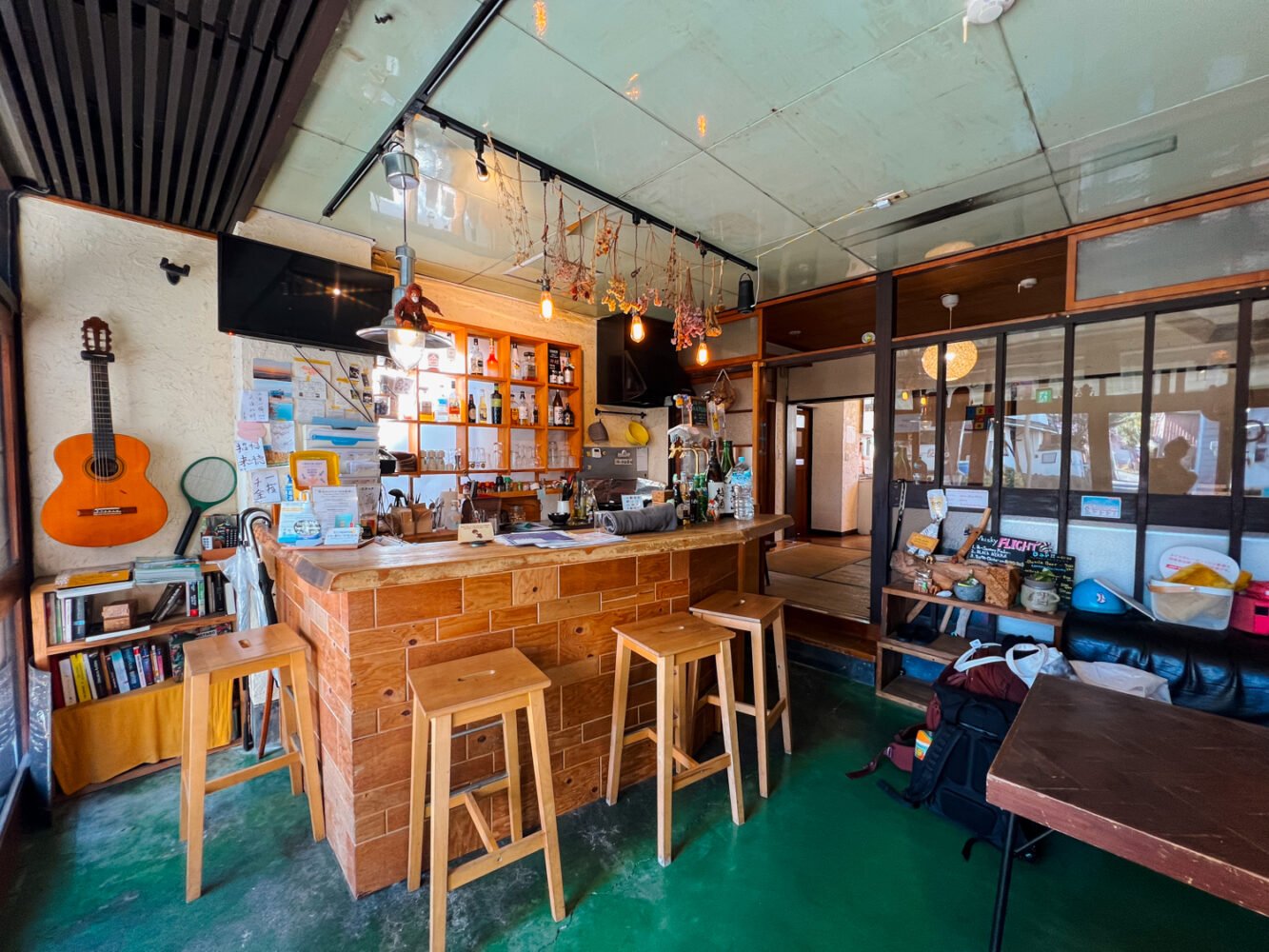
After visiting around, my top recommendations for ryokans in Yumoto are Fukuzumiro and Suimeisou.
With kaiseki (multi-course meals), tatami mats, and on-site private hot springs, it’s no surprise that these places consistently get five-star reviews.
They are in a fantastic location close to the Hakone-Yumoto Station, too.
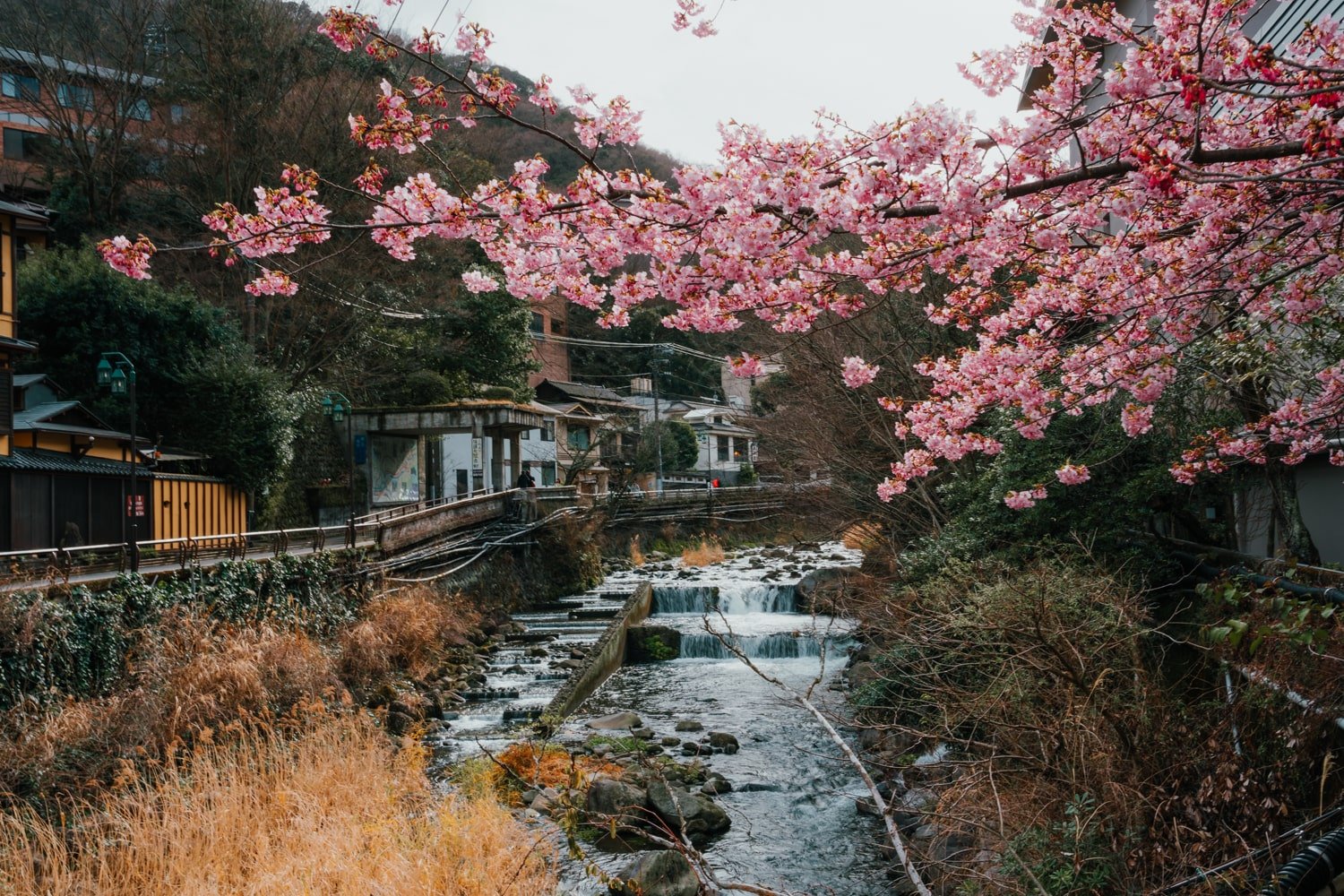
Another option, even though it’s a bit more tucked away in nature, is Hoeiso, which offers a top-notch traditional ryokan stay.
Between Yumoto’s serene landscape, delicious food, range of accommodations for all budgets, and convenient bus/train station, Yumoto is hands-down the best town to stay in Hakone, especially for first-time visitors!
Read more things to do in Hakone-Yumoto here!
Gora
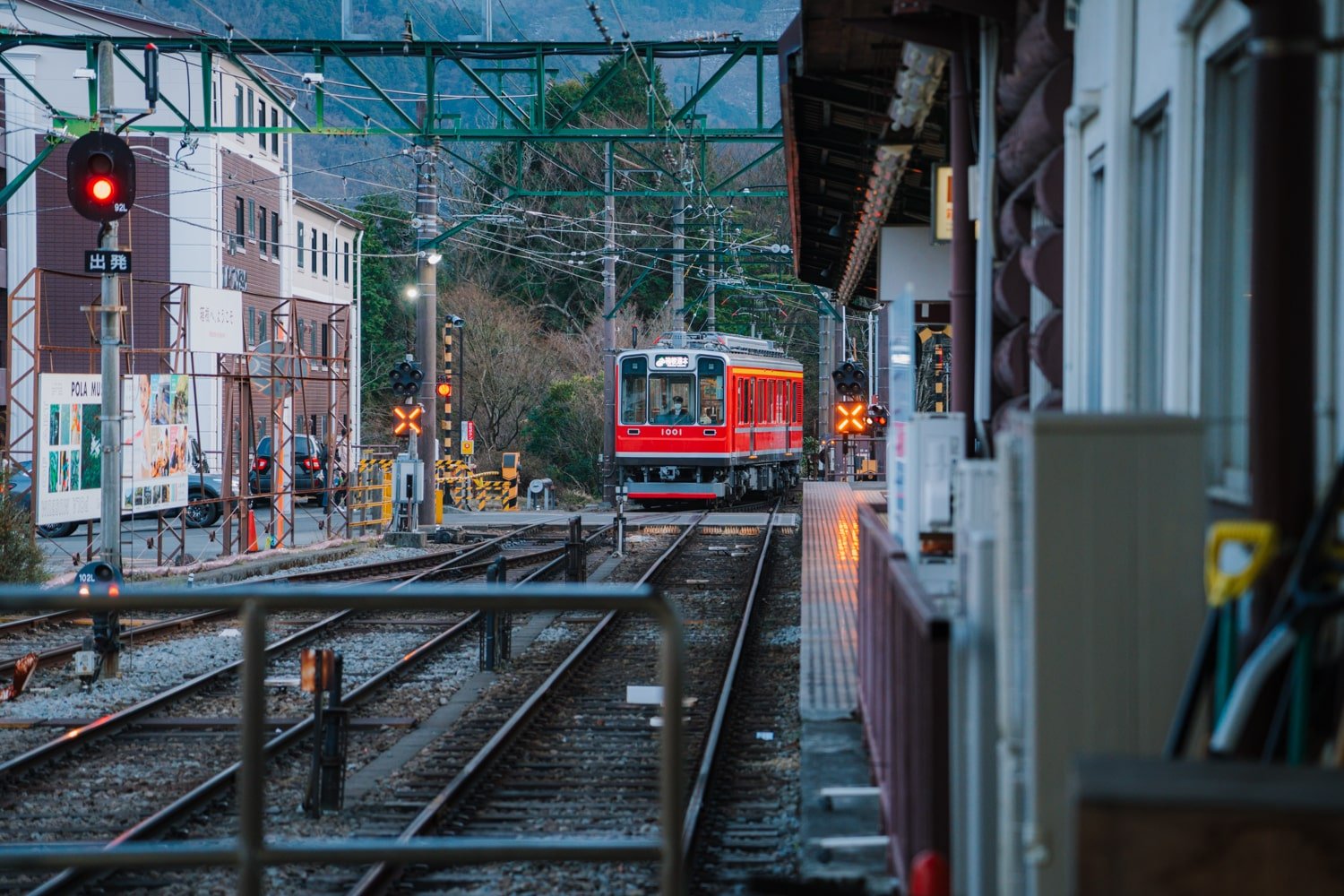
The Gora Onsen district is perhaps the next-best location to stay overnight in Hakone, mainly due to its centrality, high-end ryokans, and beautiful natural landscapes.
Some of the best hotels and ryokans in Gora are:
- Gora Kadan (exceptionally-rated with beautiful open-air baths and facilities)
- Kowakien Tenyu (a luxurious and popular ryokan)
- Honbako (a cool, contemporary hotel x ryokan design)
Why stay in Gora?
Gora is a popular choice because it is fairly central to the rest of Hakone.
You can take the Hakone Tozan train line from the Gora Station and the Tozan cable car (after which you can reach and ride the Hakone Ropeway to Togendai).
By the way, all transport around Hakone is included in the Hakone Freepass! You can learn more about whether the Hakone Freepass is worth it in my guide.
With a quick 5-minute ride on the cable car from Gora, you can visit the French-manicured Gora Park and the Hakone Museum of Art.
Or, hop on the bus quickly to the Hakone Open-Air Museum, with its famous Pablo Picasso Pavilion.
Public, day-access onsens in Gora are nearby (check Hanagouchi or the Mori no Yu open-air baths at the Yunessun Spa Park), but you’ll likely need a car or bus to get there as walking around Gora is more spread out.
Gora doesn’t have as much variety of restaurants and shops in the town as Yumoto does either; nevertheless, there are a few options around the station.
For travelers, the Hakone TENT Hostel & Bar offers budget-friendly beds and digs. You’ll find the Coffee Camp next door for yummy brunch and beverages.
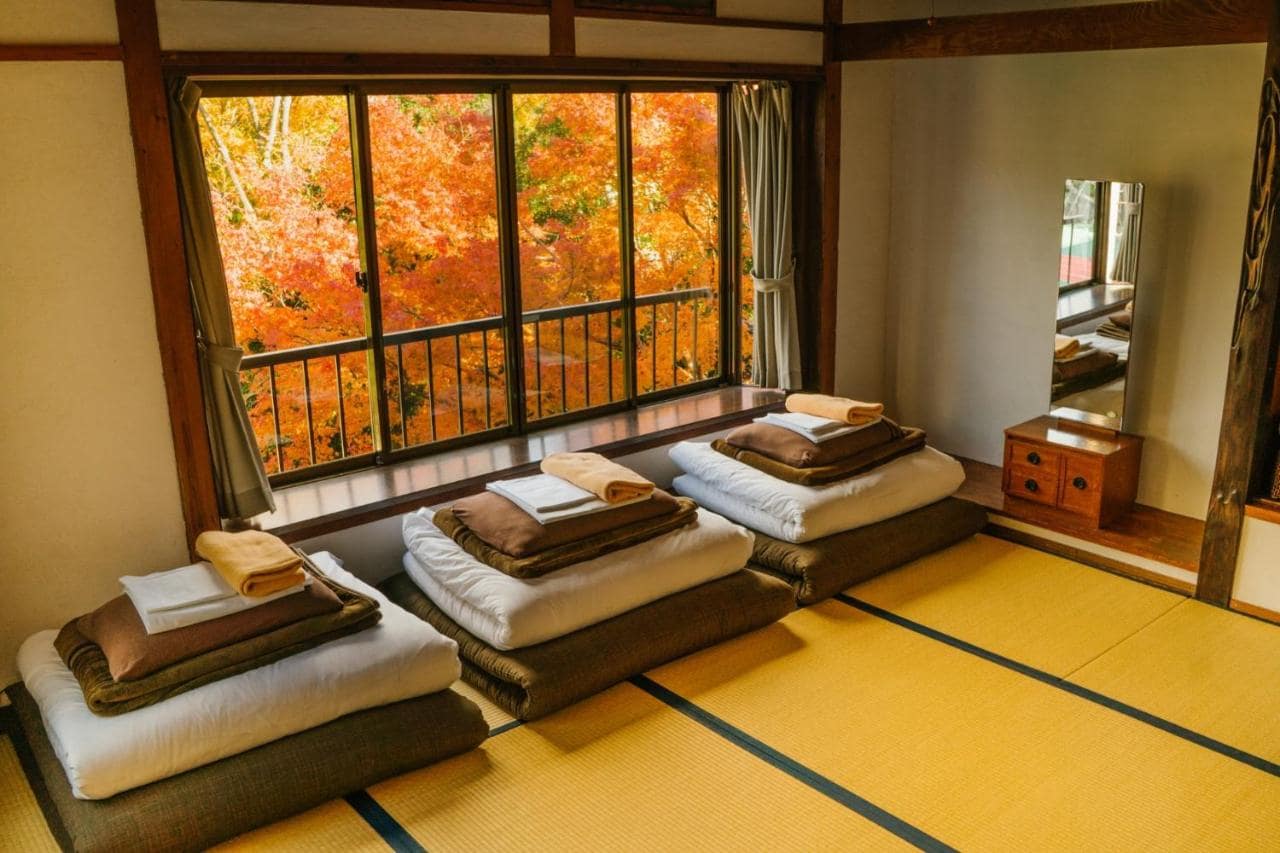
Across the Haya River, you’ll find Tokyo Sushi, Hakone Box Burger, and even a little fishing pond. If you are on a family vacation, the fishing pond and the Yunessun Spa Park are great, kid-friendly activities in Gora!
For hiking, you can take the bus from Gora up to the Mt Kintoki Trailhead or meander your way to Mt. Myojogatake Trailhead.
If you plan to go directly from Hakone to Fujikawaguchiko after your stay (instead of returning to Tokyo), then Gora will also make your journey a little lighter since it’s on the way.
Miyanoshita
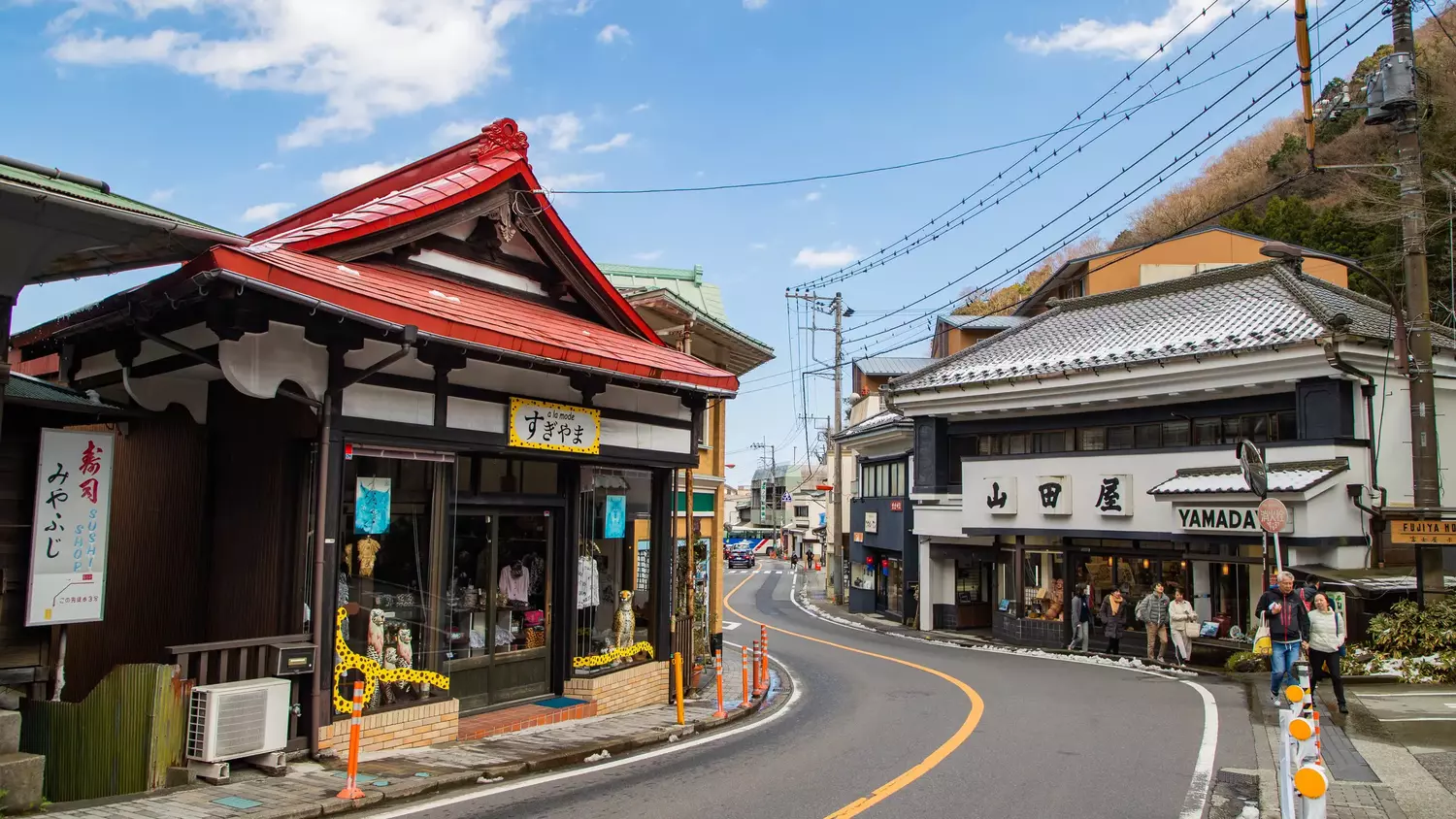
Often called retro and historic, Miyanoshita is a cute area in Hakone (located just before Gora) in which to stay. I passed through here several times on the bus—blink, and you’ll miss it!
This small but charming town offers a quieter, vintage side of Hakone away from the crowds.
I would recommend staying here if you find a particular ryokan or hotel that you love.
The five-star Fujiya Hotel, established in 1878, is one of Hakone’s—and Japan’s—most iconic and historic hotels. According to the Hakone Tourist Association, former guests include Albert Einstein, Charlie Chaplin, Helen Keller, Dwight Eisenhower, and Emperors. How cool is that?!
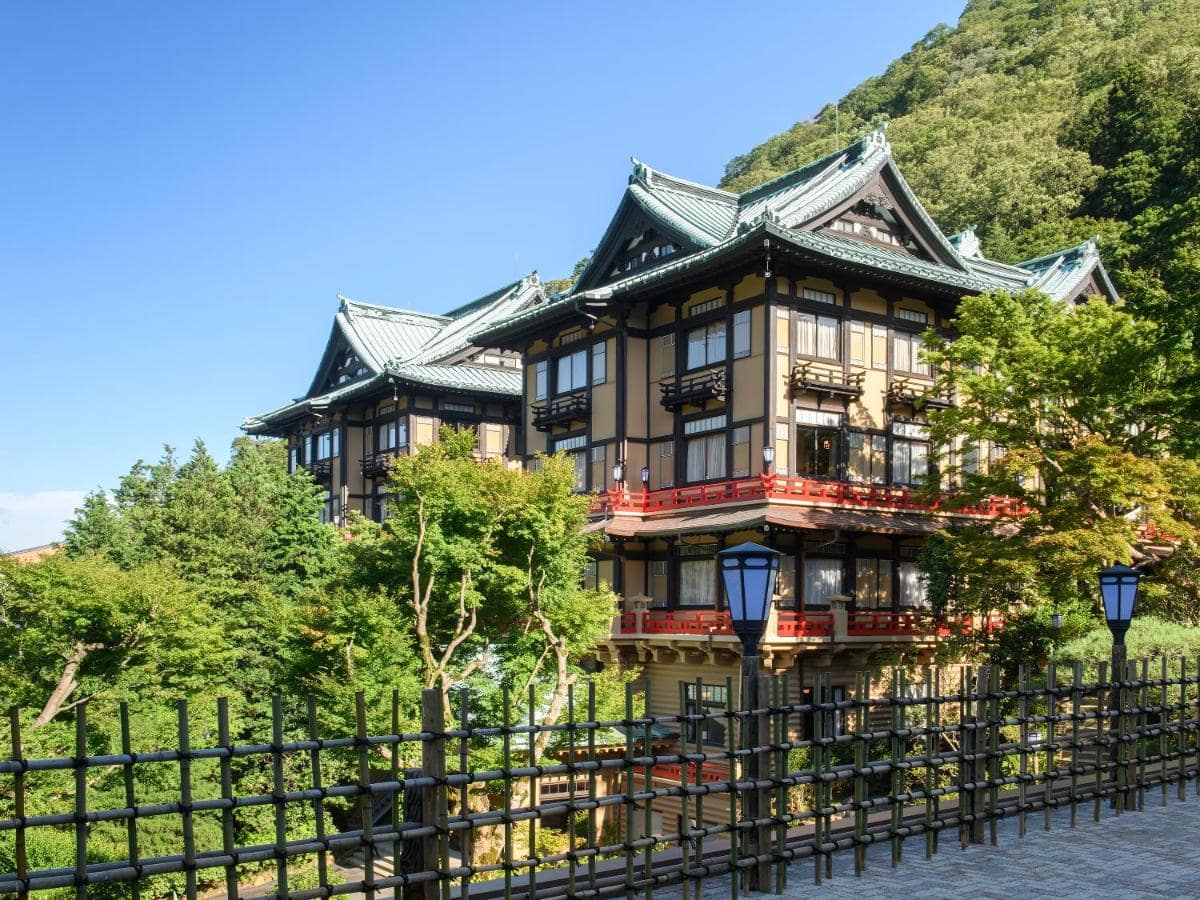
But if you’re looking for something that satisfies comfort, location, and budget, look across the street at Hakone Hostel 1914.
This renovated hostel features private and shared tatami mat rooms inside a historic building, which was once the original Hakone Miyanoshita Post Office building (completed in 1914).
Chisuji Falls, Okada Museum of Art, plus the attractions around Gora are all a quick bus ride away.
Considering its location near Gora and retro charm, I don’t think you can go wrong with a stay in Miyanoshita!
Motohakone-ko
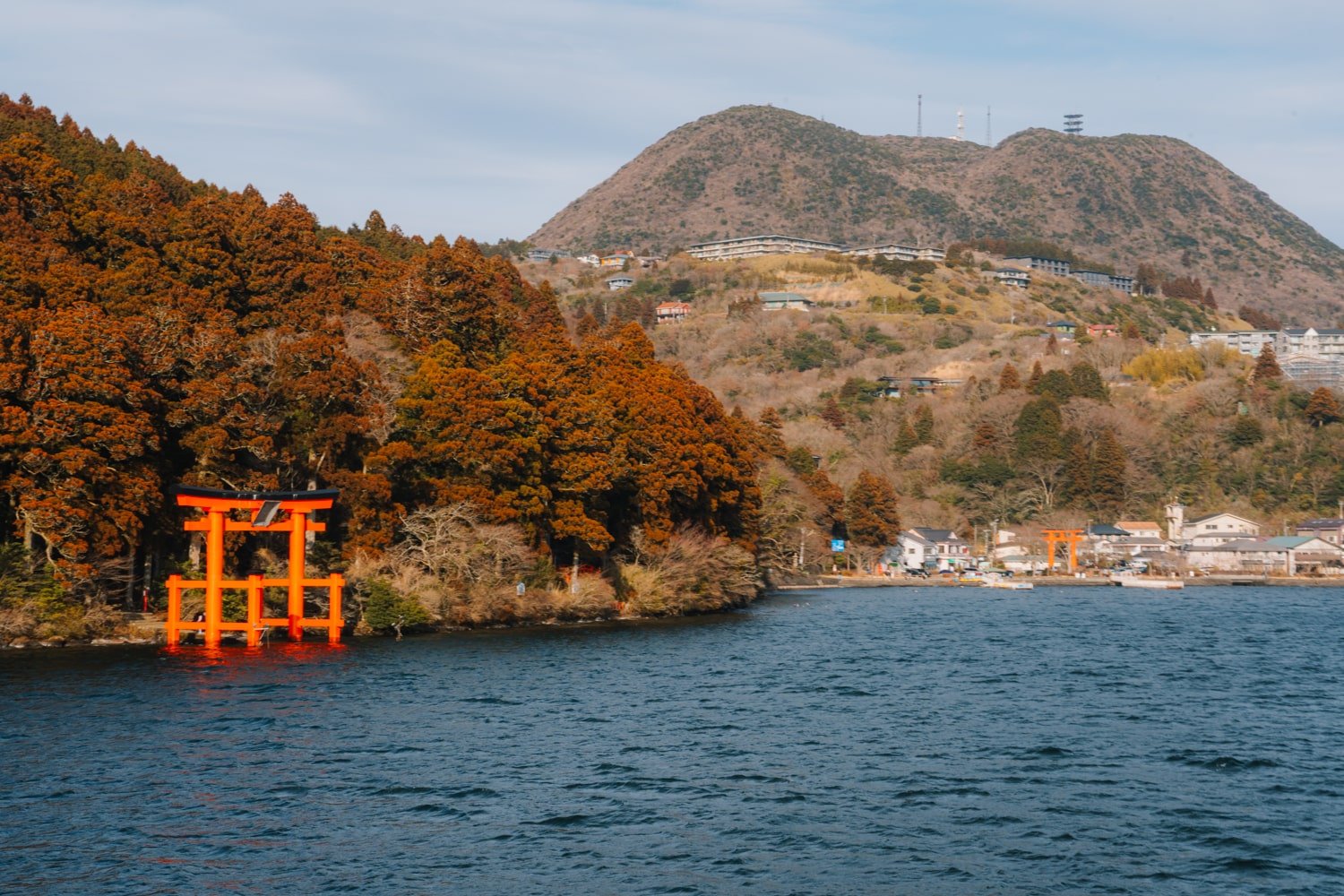
If you’re not careful when booking your accommodation in Hakone online, you may find your lodging way down in Motohakone-ko by Lake Ashinoko. This happened to a guy I met on the bus!
While Motohakone-ko isn’t a bad area to stay in, it is a bit far removed from “the rest of Hakone” because you’ll have to take a longer bus ride at the start and end of your day to and from anywhere (unless you have your own vehicle).
Otherwise, in Motohakone-ko, you are in the perfect location to visit the Hakone Shrine, board the pirate cruise to cross Lake Ashinoko to Togendai, visit the military Hakone Checkpoint, Narukawa Art Museum, and more.
From this lakeside town, you can get views of Mt Fuji on a clear day and even walk on the historic Old Tokaido Ancient Cedar Avenue to reach the original Amazake-Chaya Teahouse, a 400-year-old teahouse that served traveling samurai during the Edo period.
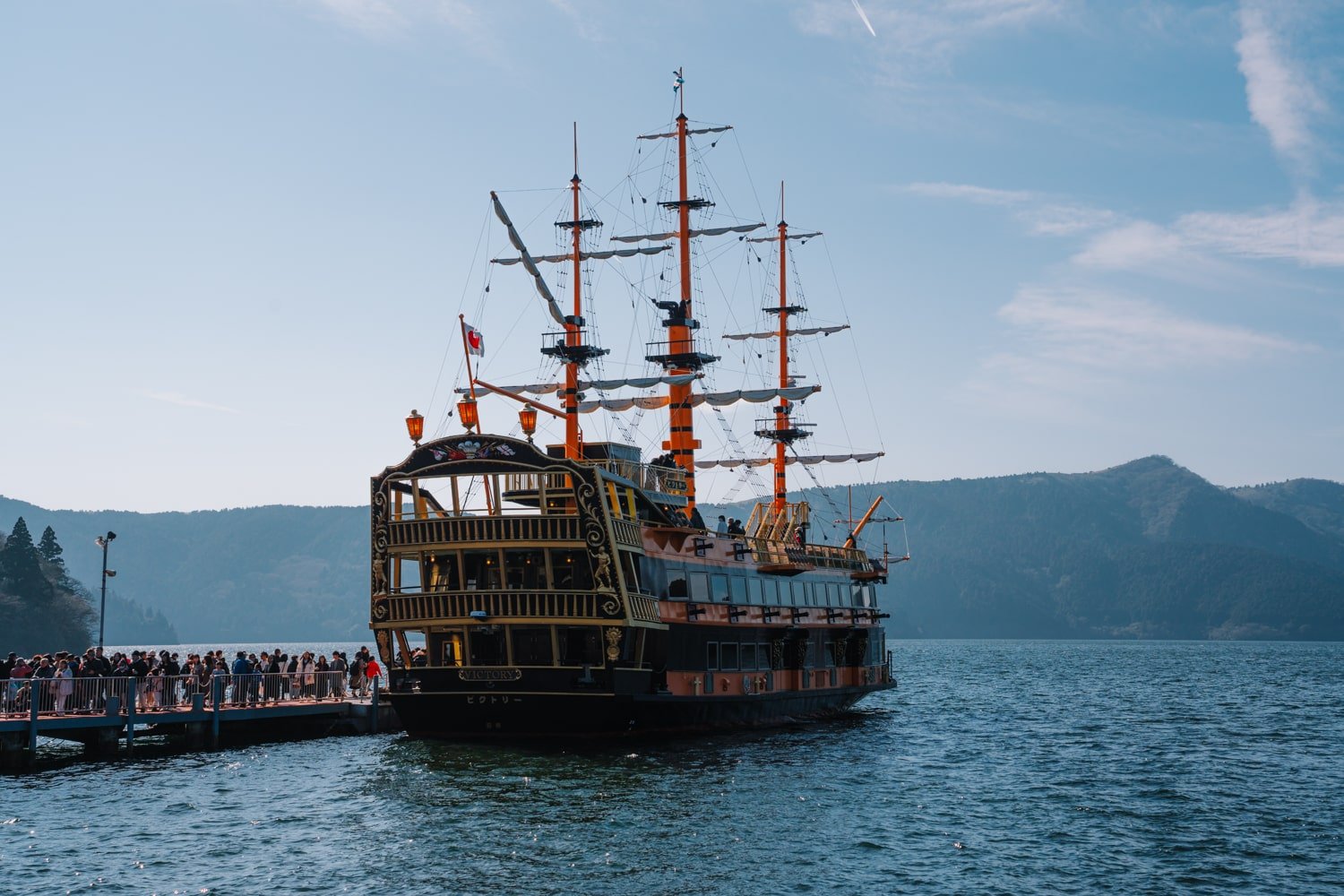
For where to stay in Motohakone, check out:
A bus ride or drive further south will take you to the Mishima area, where you can cross Japan’s longest suspension bridge (Mishima Skywalk) and visit the Yamanaka Castle Ruins. Note: Recommended for longer itineraries.
Even though the onsens, museums, and Hakone-Yumoto Station aren’t very close to Motohakone-ko, it’s a beautiful place to stay in Hakone and worthwhile if you know what to expect and what you want to include in your Hakone itinerary.
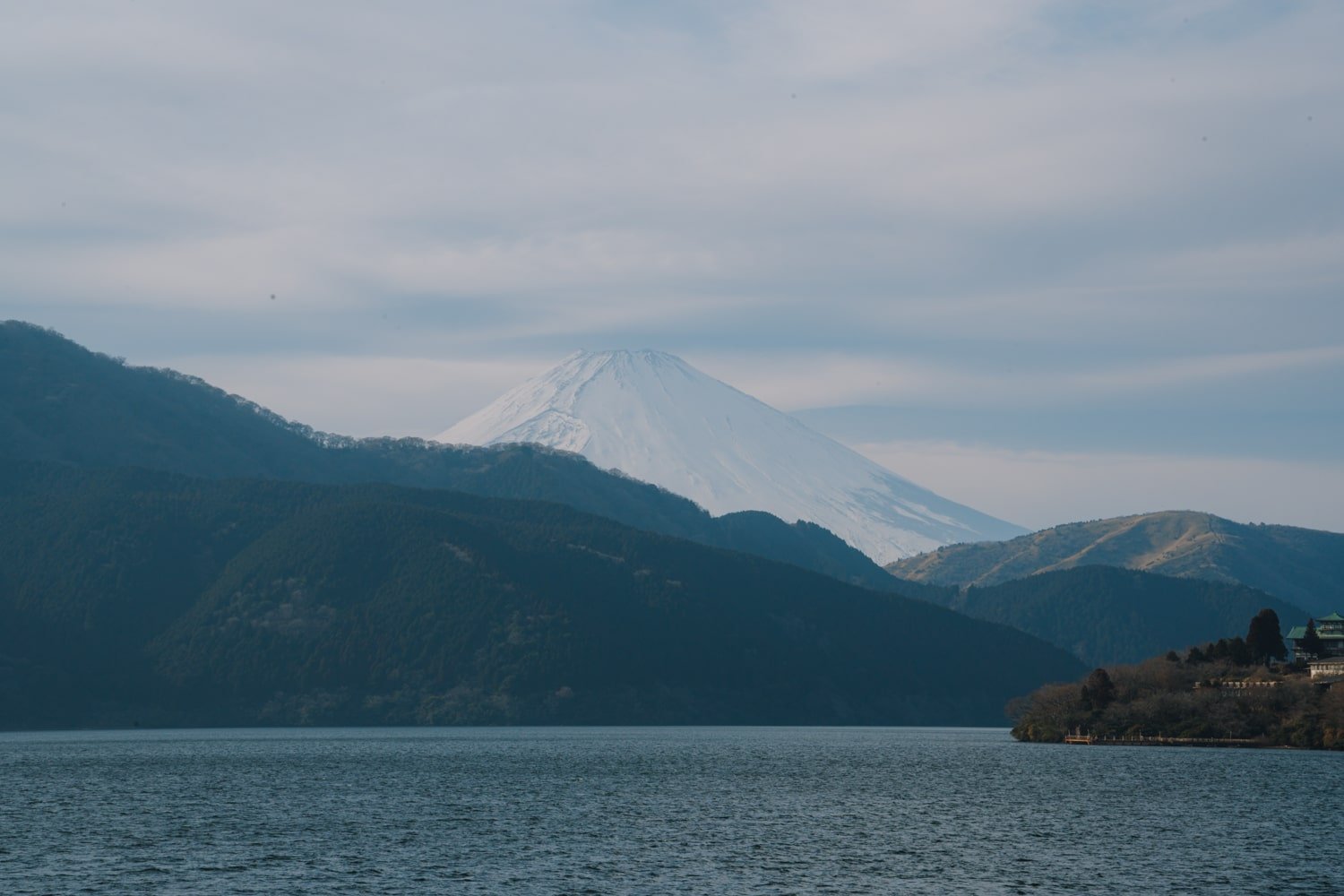
In sum, I still feel biased for Yumoto, as this is where I stayed for three nights, and I loved it!
But, depending on your group size and choice of activities in Hakone, you may want your base in Gora.
No matter where you stay in Hakone, I am sure you will have a wonderful time! I hope this guide helps clarify all the different areas in Hakone!



